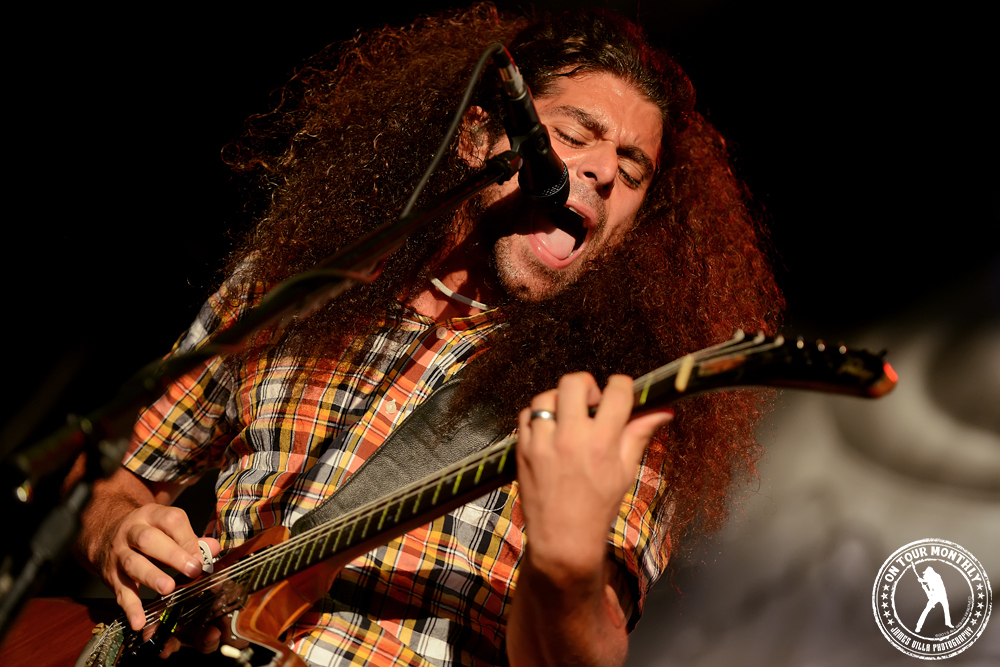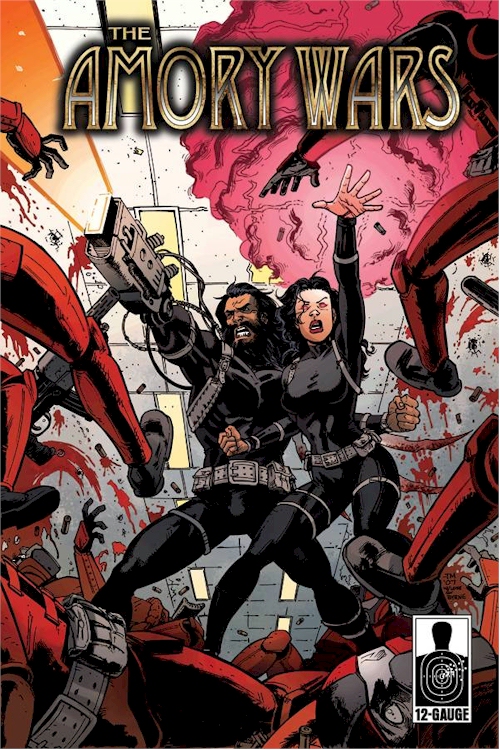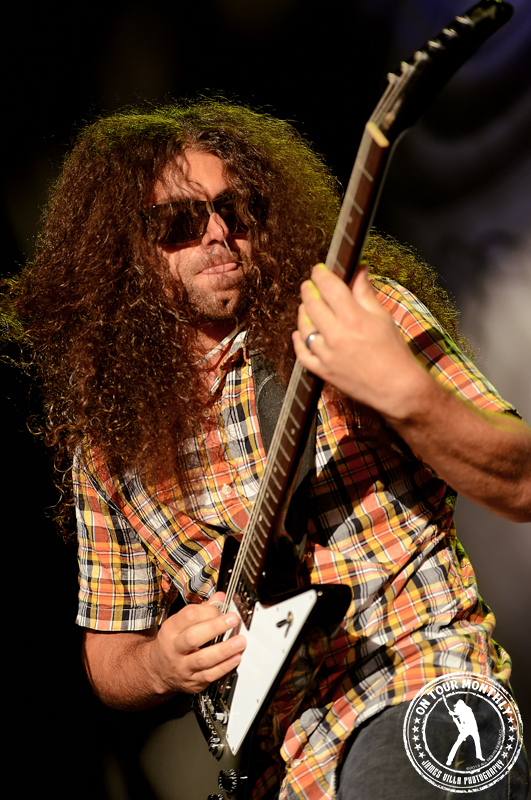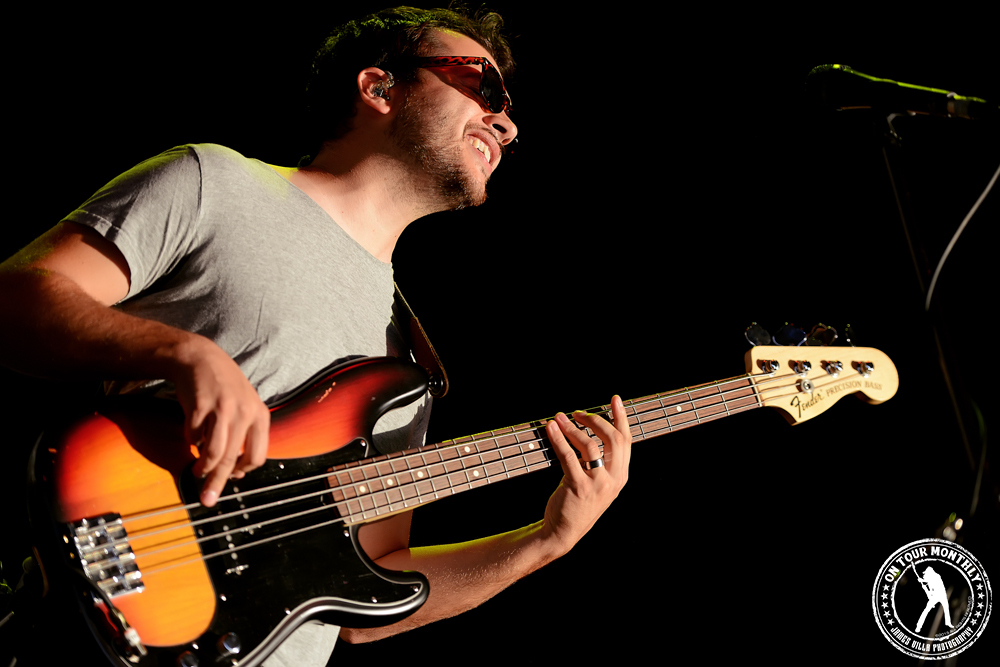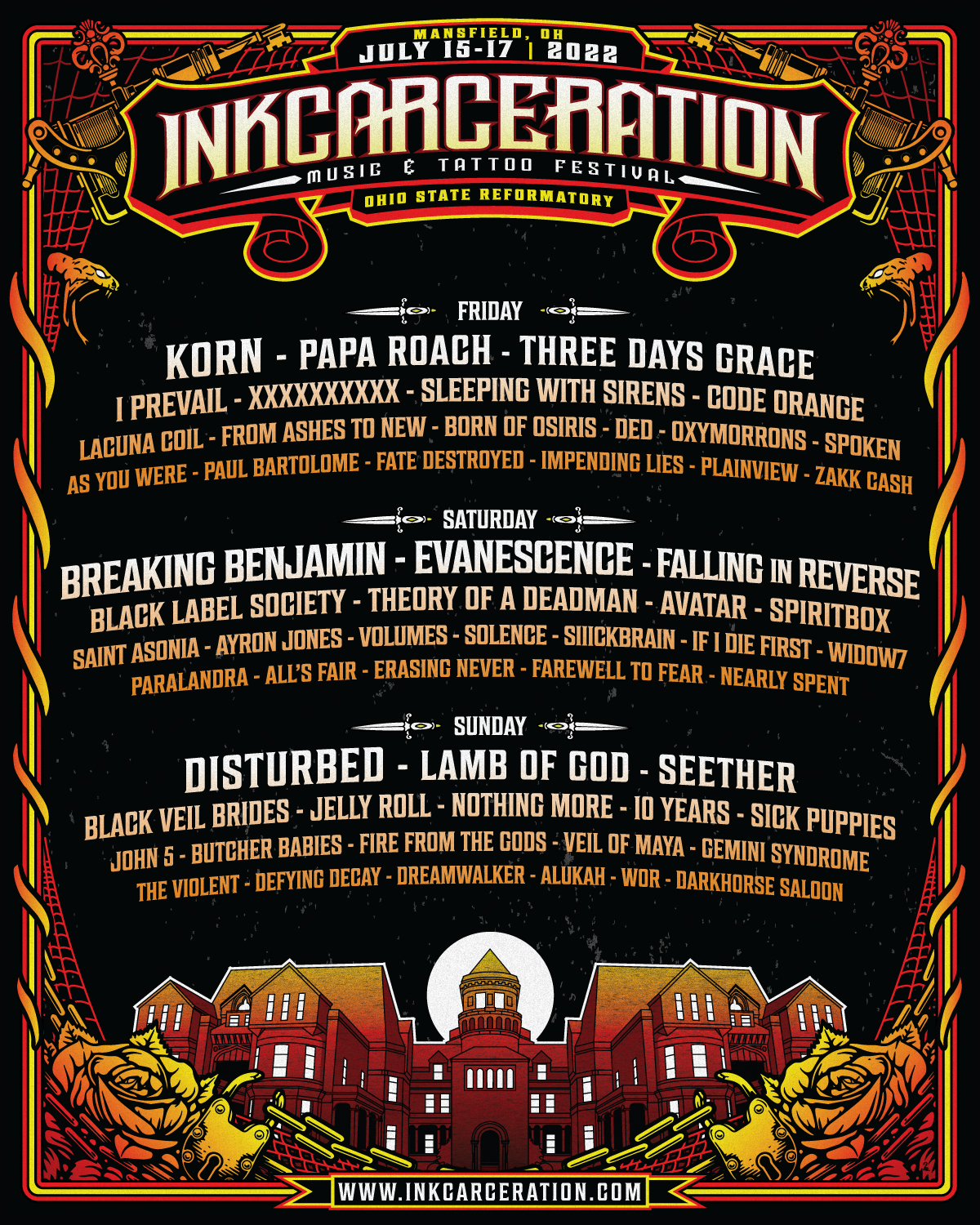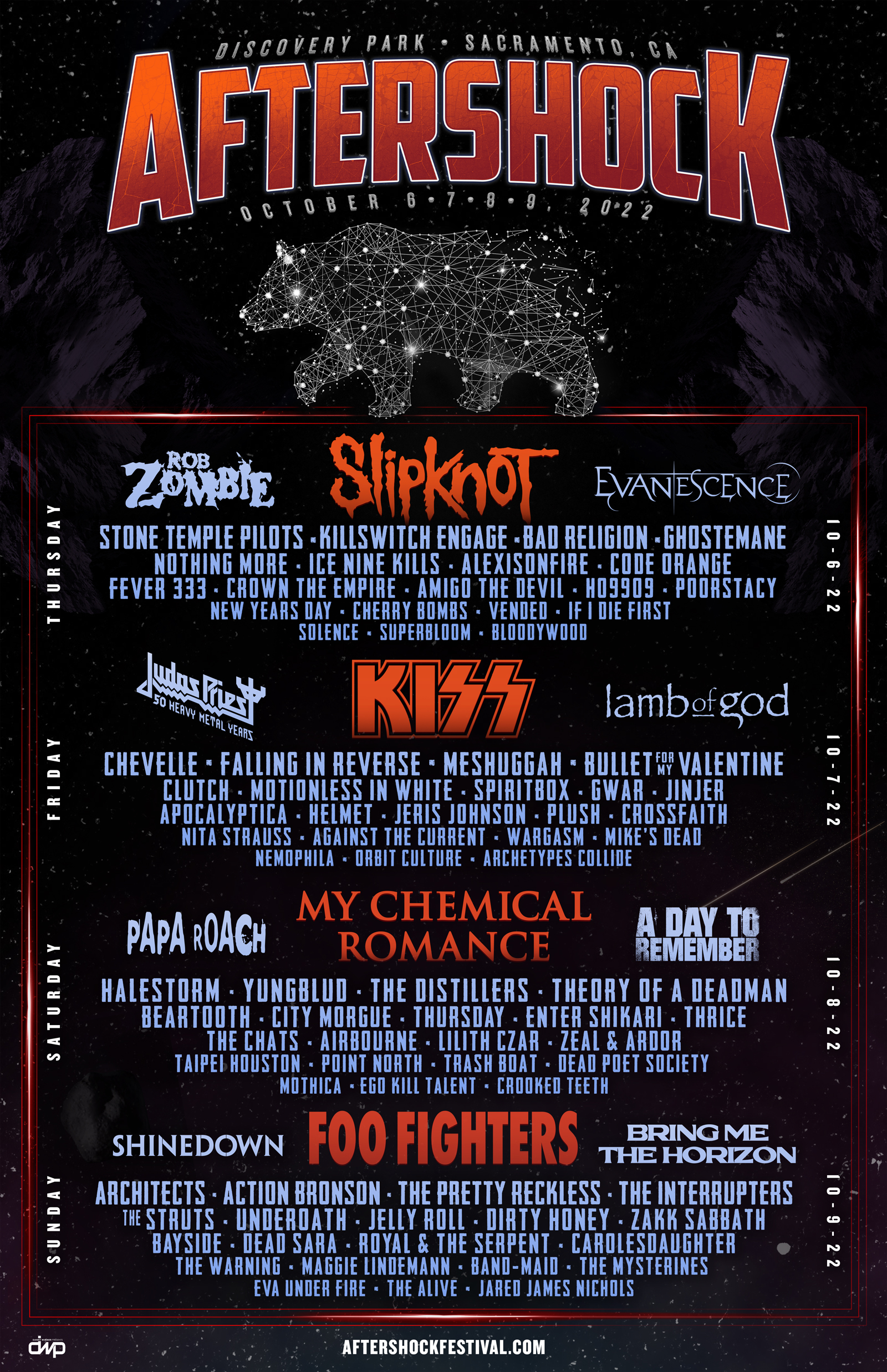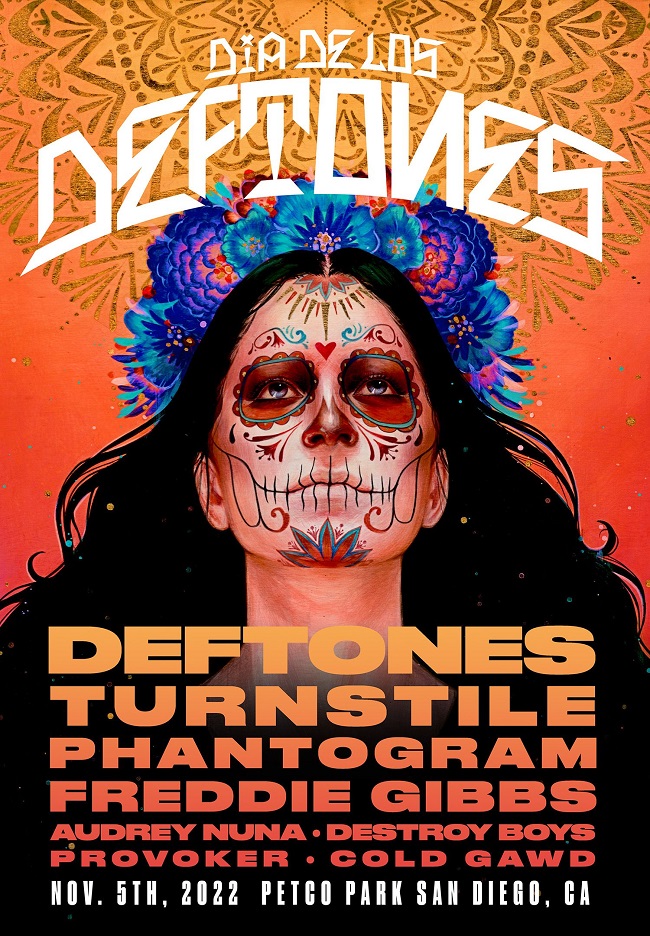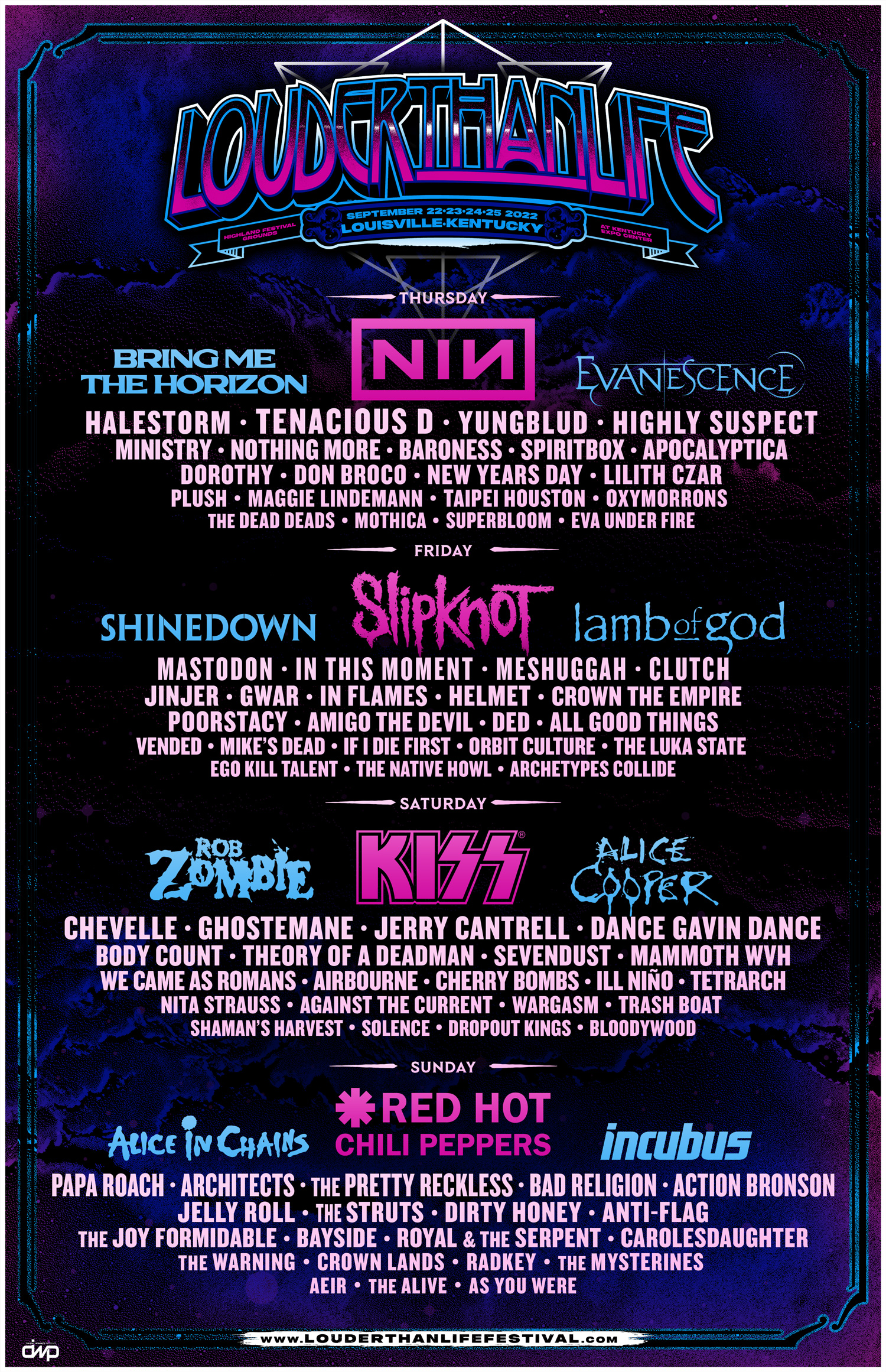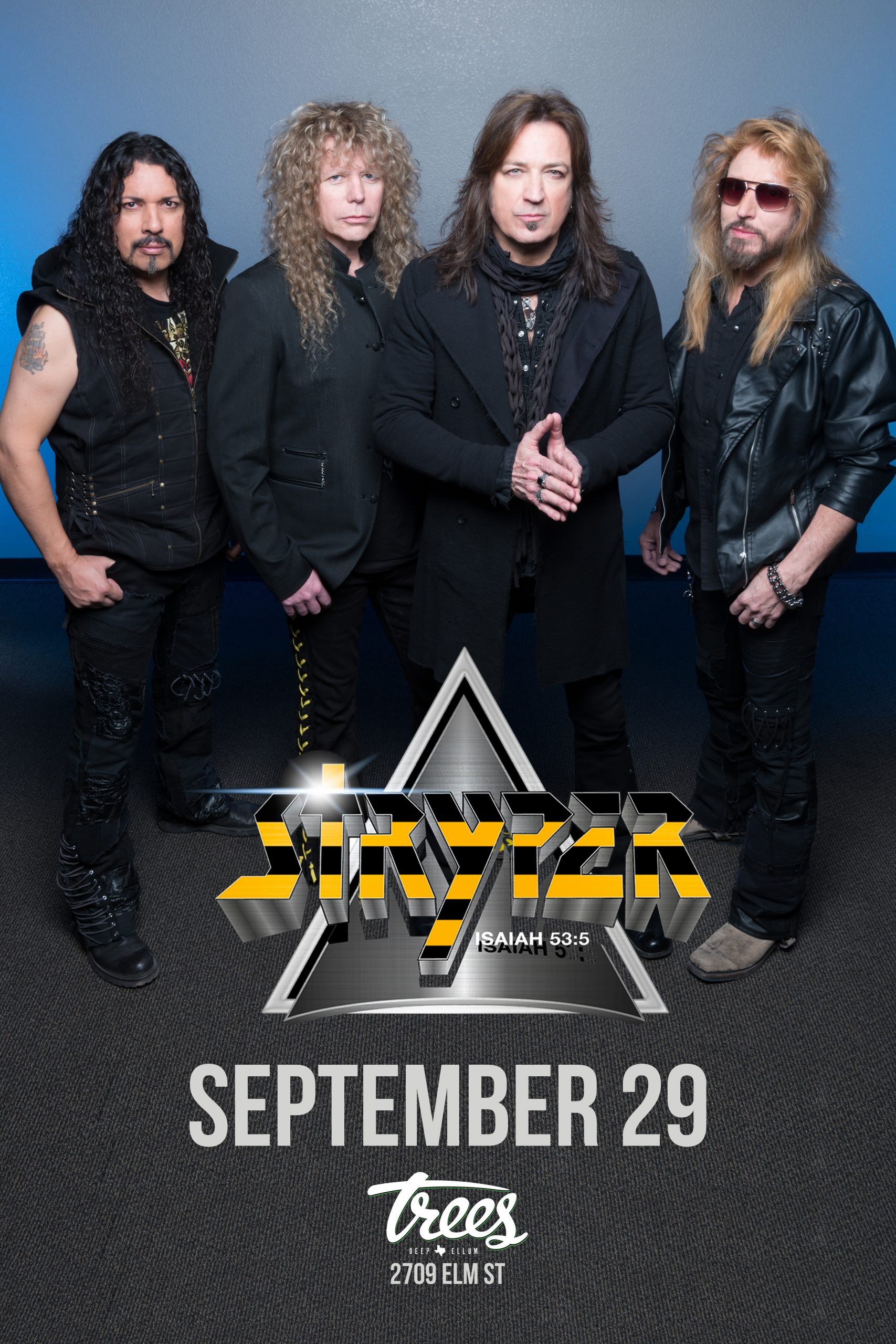– By On Tour Monthly –
“Coheed and Cambria Explore the Final Frontier“
A concept album is a studio production where all the music and lyrical ideas spring from a single concept that unifies the theme of the story over the course of the record. Throughout the ‘70s, English progressive rock bands ruled the day with the impressive music they created. Bands like Yes, Genesis, Jethro Tull, ELP, the Alan Parsons Project and Pink Floyd created epic masterpieces that have stood the test of time. With the advent of the ‘80s, the concept album, along with the bands that thrived creating them, became nothing but wonderful memories. The industry gave way to formatted radio stations ruled by three to four minute songs.
Certainly there were some breakthrough instances in the ‘80s, like the brilliant Operation: Mindcrime from the Seattle-based group Queensryche, but outside of that one moment in the sun, concept albums were pretty much relegated to footnotes in history. It took the group Coheed and Cambria in 2000 to take the audacious step of reviving the lost art of creating a single-themed record. Front man Claudia Sanchez was the mastermind behind the science fiction epic he constructed under the guise of Coheed based around a fantasy he conjured up called the Amory Wars. To date, the band has recorded seven full-length albums within the framework laid down by Sanchez’s ongoing storyline. He has also captured the adventures in comic book form and strong rumors of a full-length motion picture.
How these sci-fi novellas came about is best answered by Sanchez’s partner in musical crime, guitarist Travis Sever. The two musicians have been together since they were teenagers growing up in New York. Seventeen years later, the two are still knee-deep in the fantasy land Sanchez created. It would be somewhat of an understatement to say the group has taken its fan base on one heck of an astral ride the past ten years. No matter how you look at it, space has indeed been the final frontier for this progressive rock band.
On Tour Monthly: I’m always curious about a direction a band decides to pursue once they have finally figured out the right pieces to the puzzle, which is the makeup of the group itself. Was it that easy for you to buy into Claudio’s astral album concept vision when he presented it to you back at the turn of the century, or did you even care?
Travis Stever – I have known Claudio for so long, I was intrigued by the idea when he presented it to me. Claudio is comfortable as the lyricist for this band, and he likes to write that way. It also makes for a relaxed atmosphere when it comes to writing songs. He likes to speak using real life metaphors, but in an entirely different way. That’s where the concept came into being. In a lot of ways, I think this world that Claudio created was his way of getting over being shy. He didn’t have to wear his heart on his sleeve with the lyrics he came up with. He was able to reveal crucial and extremely private aspects of his life through the eyes of a fictional character. I instinctively knew that working with Claudio on this project was the right move because it would add another dimension to our band. The concept really helped people get into Coheed and Cambria, and they are still with us seven albums later.
OTM: Writing themed music that spans an entire album, as opposed to random individual tracks, is intense as well as complicated. It becomes especially difficult when you want the compositions to stand out on their own within the context of the project itself. Has that been a problem for you at times?
No it hasn’t. To be honest with you, we have never really centered the music around anything like that. Each song within the overall context of an album is built to stand on its own. With us, the difficult part is putting the finished songs in order so it makes sense to the listener. That’s when it gets tricky. Claudio often comes to our writing sessions with a song already completed. All we do is add our parts to what he has done. If I am writing a guitar part to Claudio’s songs, what I’m trying to do is compliment his vocals. If we have a special thing going on with the riff, I tend to do whatever I can so I don’t interfere with his singing.
OTM: I’m still trying to figure out where the concept of the album actually comes into play.
Let me confuse you even more. The concept is added after we have written the music. Claudio will write lyrics after we have composed the music that ties everything together. From someone on the outside looking in, what we do appears complicated, but it’s not. Our albums are never a concept when we write the music. The themes come afterwards. We figure the music out first then Claudio paints lyrics around it. There will be times where we are recording a grand part of a song, like a longer piece such as “Gravity’s Union” on the new album. Claudio was actually explaining to us what was going on while we were actually recording it. There are times where I will be writing riffs while Josh (Eppard) is doing something with the drums. Once the story is explained to us, we understand the reason we’re going in a particular direction with the music.
OTM: It still sounds complicated!
It’s a rarity in this business, that’s for sure.
OTM: Looking at your album catalog, it reminds me a lot of what Rush did in the ‘70s. Neil Peart would come up with these fascinating lyrical passages, and the challenge for Geddy Lee and Alex Lifeson was to write music equal to the words Neal had written. I asked Geddy about that one time, and he told me Neil’s thoughtful phrasing with words forced him and Alex to think outside the box when it came to constructing music. In all seriousness, Claudio hasn’t made anyone in the band’s job easy when he presents the band with another installment of his fantasy world?
This band has been thinking outside the box from the very beginning. Seriously, this is the seventh album we’ve created for Claudio’s fictional world. Trust me. Nothing is out of bounds for us. In fact, this direction we’ve taken has actually made it easier for Claudio to describe his fantasy adventure in words fans can understand. For instance, if he has the skeleton of a song written on an acoustic guitar, we are all going to add what we do and the music will be even more outside the box. With Josh returning to the fold, I think this band has gotten even bolder and more adventurous with the music. It’s not like Josh stopped playing music the five years he was away. In fact, he has brought a new approach to how we should look at the music. Zack also plays an important role. He’s not only an incredible bass player, but someone you just like to hang out with. Those two bring a whole new perspective to the music and a train of thought we never would have thought of. Coheed is an example of group that has no fear of stretching the boundaries in whatever direction it chooses to go in.
OTM: Claudio is the ultimate idea man with his intriguing universe-size theories he writes about. That makes you, in a sense, the detail man. Is it your job to humanize the stories Claudio is telling with the lyrics?
I do like to do that. When you are fortunate to work with a gifted songwriter, and that’s exactly what Claudio is, the challenge becomes bringing his work to life. Claudio is really into it as well, don’t get me wrong, but part of my whole thing is I balance out his artistic side. Even though the concept is based in fantasy, my challenge is to let our fans know I’m one of the guys wearing his heart on the sleeve.
OTM: Outside of the fantasy world Coheed creates, connecting with the audience is very important to you isn’t it?
When it comes down to it, I like people to know that there’s an intimate side to all aspects of our music they can connect with. I want people to realize it’s not some distant universe that they are consistently hearing in the lyrics and our music. There is real life experience rooted in Claudio’s lyrics. There are items in every song that people can relate to. I find that people will connect with different parts of our songs and ask us questions about the intent of the song when they meet us. Their interpretation may be way off, but if a particular section of our music means that to them, that’s great and they should go with that. Ultimately, we want out songs to evoke an emotion and reaction out of whoever is listening. I don’t care if the catalyst comes about through words or a guitar.
OTM: I’m starting to understand why your growing fan base is passionate about the music and the band itself.
We put a lot of emotion in our music that we hope fans pick up on. We want people to actually think when they hear our music. For instance, another song off the new album, “Away We Go”, started with a riff I had. Then Claudio wrote all those words around it and built that riff into a four-minute song. I connect with that tune, not because the idea was sparked by something I had done with the guitar, but for what Claudio did lyrically. I know what he’s talking about, and the funny thing is it had nothing to do with its place in the overall album concept. A simple way of looking at this song is like this. You are happy to be with your loved ones. You’re driving around the street recalling the many things in life that have affected you. Whether it’s turmoil you survived, or joy experienced, it’s just luck you’re having that moment. Obviously there are more layers to the song than what I just described. There’s a real-time component to the dimensions of the fantasy world we’ve created.
OTM: Your musical accomplishments remind me of the great concept records created in the ‘70s. Artists had total freedom to create. The record companies were run by people who actually loved music. Do you think the affect the Internet has had on the music industry the past ten years has brought back that ‘freedom to create’ attitude of the ‘70s that has allowed Coheed to flourish in today’s environment?
On one hand it has, but on the other, all I can say is it has done a great deal of damage as well. Bands have to struggle a lot more and don’t sell records and CD’s like they used to. The Internet has turned this country into what I call the “A.D.D. nation”. Everything is at your fingertips. You can’t really elaborate musically these days without that nagging fear a person will turn you off with the click of a mouse and move on. If you take too much time to explain an album, people are going to quickly go looking elsewhere. Coheed is lucky to be a band people like because of the fascinating concept that continuously runs through everything we do.
OTM: The music progressive rock bands of the ‘70s created have stood the test of time because people had to physically by the product, could read liner notes, and got to know the band by listening to the music over and over again. It’s a different experience today.
I sometimes envy bands in the ‘70s because they had the benefit of an unexplored spectrum called FM radio in which to air their music. Bands back then could express themselves with no restrictions on time when it came to creating music. You just wrote the song until you felt it was complete and the FM jockeys would put it on the airwaves. If you wanted to create a concept record, then you did. Today, if you tried to create music like they did forty years ago, you’d lose people instantly. Despite the negatives, the Internet is also an amazing vehicle as well. It enables you to do so many wonderful things. It’s a great tool on one hand, and a crippling one on the other. There’s an up and down side to everything, where the good is equaled by the bad. As for this band, the Internet allows us to explain our music and give people something extra to look forward to when they see us live. In all honesty, the timing of the Internet’s impact on the music business, plus Claudio’s fascination with comic books, came together perfectly for this band.
OTM: The greatest single challenge any band faces is maintaining a relationship with its fans album after album after album. In almost all instances, people outgrow or just move on after showing initial interest in a group. What is fascinating about Coheed is the fact you have convinced your fan base that walking away during any part of this journey you’re taking them on would be a mistake. It was a brilliant move whether the band intended for that scenario to happen or not, because it did.
That is a happy coincidence my friend. It also presents us with a tremendous challenge. Every album we create is literally, to be continued. That’s especially true when it comes to our double albums. We give our fans sonic cliffhangers, much like they do with scripted season-long television shows that end in dramatic fashion. You have popular programs that always leave you guessing what’s going to happen next so you will tune back in when they return the next season. That’s pretty much a blueprint for what we have done. Gripping people with curiosity is one of our favorite things to do. Some people call us a progressive metal band. Somehow, someway, Coheed has been able to incorporate a rock sound into the lyrical journey Claudio sees in this mythical universe he’s created.
OTM: Because all your albums are conceptually based, how difficult is it for the band to create set lists on tour that make sense to you, and especially the fans. I would think that’s a challenge all onto itself.
Actually, it is not as difficult as you might think. This goes back to what I was talking about when it comes to creating songs that stand on their own within the overall concept of the record they’re on. We pick songs that we think are going to be received the best by the audience then base the set list around that. For our current tour, there’s a running concept throughout the show. We chose songs we thought people would want to hear. Then we lined them up perfectly to segue from album to album in our catalog. There’s also a visual component we incorporated into the show as well. This tour is the most visually stunning we’ve ever taken on the road. Our set designs are always created with the fans in mind. We also take into account that for some people in the audience, they’ve never heard of Coheed and Cambria and this is their first exposure to us.
OTM: The continuity Coheed has maintained with the storytelling throughout you catalog of albums has allowed the band to maintain total control over its career. I’m curious as to why the band decided to end its relationship with Sony after the release of the Year of the Black Rainbow. The Afterman recordings appear to be released on an Indie label. What’s going on?
Our contract was up with Sony. We could have renewed, or renegotiated with the label, but we decided that instead of going through the process, it would be better if we went the independent route to self-release our music. It’s worked out better for us. Listen, we had absolutely no problem with Sony. In fact, we were really wrapped up writing the next album when it came time to make the decision to resign with Sony or move forward alone.
OTM: What you just said would have been an insane comment for a band to make ten, eleven years ago, because bands just did not walk away from a label contract to go the independent route. Today, it is no big deal. The Internet may leave a bad taste in your mouth at times, but it certainly has leveled the playing field that allows you to do whatever you like musically without being dictated to.
Record companies can’t back bands financially the way they used to. They certainly can’t afford to fund a promising band to develop them. Those days are over. The day of the platinum album is almost over. People will download a song before they purchase the overall record. The main source of revenue for a band these days it touring. We’re fortunate Coheed can make money when we go on tour. It allows us to work outside the realm of a record company and literally be self-sufficient. We make our own decisions and live with them, good or bad. I will say that Sony never dictated to this band. They were very open and good to us. They took a gamble that Claudio’s concept approach would work. On the other side of the coin, there are a lot of labels running scared these days. It’s complicated what’s happened to the music industry.
OTM: Looking at the timeline of your band, you walked away from working with Claudio for a three-year period in the late ‘90s and then came back. Why?
Wait a minute. I never walked away from Claudio.
OTM: This chart says you were gone from 1997 to 1999.
That’s when we were kids and playing in different bands. I have been in Coheed and Cambria since its inception.
OTM: One of the most difficult things a musician will ever encounter in his career is finding other musicians to perform with. What was the moment where you realized that with Claudio, you could build a relationship, learn the game, adjust to change and continue to risk when it came to creating music?
Honestly, the two of us have been doing this since we were 13 years old. For better or worse, we have been locked together. No matter what we’ve been through, the two of us have always created something interesting. That is what matters in the end, creating something you’re proud of and then look at each knowing you did something very cool. That’s our payoff. Claudio and I are so close, we’re almost like siblings. To a degree we are brothers.
OTM: It’s very difficult for a band to create a niche for itself in music, let alone maintain and nurture one for as long as Coheed and Cambria has. Once you started on this concept journey, when did you fully understand there would be no turning back from the road you were on?
I suspected something like that was going on with the recording of the In Keeping Secrets album. When we started work on Good Apollo, Claudio had made the commitment to really dive into the storyline he had created. The possibilities were endless and it was then I knew there was no turning back. And away we went.
OTM: Coheed has achieved an extraordinary musical achievement not seen in the music business since the days of Pink Floyd. Most artists today believe that in order to have a growing career, they need to see the landscape through the audiences’ eyes. You have made fans see the music through your eyes, which is a remarkable feat in itself.
Thanks, that’s a great compliment.
OTM: It’s a tough environment out there to be an artist nowadays.
I know it is.
OTM: Have you developed any kind of system to help you create music for these epic storylines that Claudio is presenting to you?
It’s impossible to do anything like that. Like I said earlier, a song may come from a guitar riff or the skeleton of a song may turn into something completely different once the whole band gets a hold of it. There is no formula for inspiration. It strikes at the strangest of times. I don’t think any of us really know where a song is going once we get a hold of it. You would be amazed at some of the ways songs have been created by this band.
OTM: Concept albums are just ideas until the music brings the words to life. What are your thoughts about breathing life into the lyrics Claudio writes? Let’s face it, whatever he puts down on a piece of paper are just words until it is accompanied by sound.
I want you to understand that we care about every song we release on a record. I know Claudio cares about the lyrics. His job is especially difficult at times because he’s juggling the storylines as well. What I, Josh and Zack do is bring balance to the words with music. That’s our job. Josh and Zack lay a foundation and a groove that’s going to carry the song. Claudio and I build it from there. Bridges between songs are sometimes built conceptually from sound. If you want to talk about music being dictated by what’s going on within the story Claudio has written, there’s a lot of passages leading there. That is very important and was especially significant with the Afterman projects. However, I shouldn’t downplay the importance that process has played in all our records to date. I hope I answered your question.
OTM: As the band delves further into this alternative universe Claudio has created, you probably get people picking up a Coheed album out of sequence and lose them on this interstellar journey the band is taking its die-fans on. How does the band account for that factor?
That question only comes in to play if people are paying close attention to the lyrics in the songs. The four of us always want to make sure that every single track on an album can stand on its own within the concept itself. We’ve always felt it was important that the listener connect with the music and the lyrics. We want to make sure our fans are not overwhelmed to the point that the overall recording is bigger than the songs themselves. If you are overpower people musically, then you’re going to lose them and we don’t want that to happen.
OTM: Claudio has created quite a world for the band to explore!
That’s why we don’t want anyone to feel lost. That was the beauty of some of the great bands of the ‘70s who created concept recordings. You mentioned Pink Floyd. They never wrote hit singles, they wrote entire albums and individual songs were pulled from those recordings and turned into singles. There’s no doubt that some of their songs are really overbearing unless you are a real fan of the music.
OTM: What has Coheed and Cambria taken from that era of conceptualized music?
I’d like to think we have a great pop sensibility and know a really good hook. Also, some of our music is just four minutes long. They are easy for people to connect with and fall in love with what they are hearing. Those types of songs are just as important to us as the eight-minute compositions we write that have so many movements in them. That’s how we keep a balance so none of our albums overwhelm people. The truth of the matter is we love to create any type of music we can. A song of ours that has a Police influence, or even a Talking Heads type of influence, is going to be just as important to us as a very long-winded King Crimson type piece. If you look at Pink Floyd, they had a lot of songs that went straight to the point, yet they were all tied together to create this confluent album based on a single concept. The music had hooks, it flowed, and the songs captured people’s imaginations. Like I said earlier, Pink Floyd didn’t write singles, they wrote complete albums. That’s what great musicians do.

